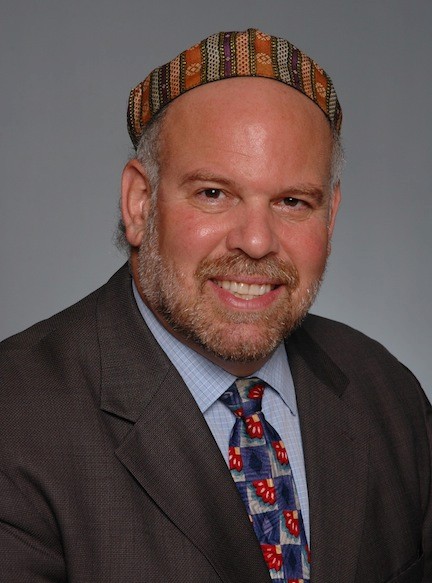A Passover message from RVC Rabbi Marc Gruber
The following Passover message was sent by Rabbi Marc Gruber of Central Synagogue-Beth Emeth:
Even though most of the Hagadah [the home service that tells the story of Passover] was originally composed in Hebrew, Monday evening, toward the beginning of the seder, we will read a prayer that was composed in Aramaic [the common language of those days], the Ha Lachma Anya.
We hold up the matzah and declare, ‘This is the bread of affliction our ancestors ate in Egypt. Let all who are hungry come and eat. This year we are here, next year may we be in Jerusalem; this year we are slaves, next year may we be free.’ One food, the matzah, symbolizes both affliction and hope.
Why does the Hagadah render this prayer for special treatment, in a different language? Later in the seder, we have explanations and interpretations of the meaning of matzah. Why is this prayer offered at the beginning in Aramaic? We ask, ‘Why was it even included?’
We say that in every generation each of us is personally responsible to view the events we recount at the seder as if we fled Egypt during the Exodus. We affirm our identity. We draw inspiration from our story of redemption and translate that hope into a resolve to bring more justice into our society and world. In this way we become agents of redemption.
We can recount too many modern plagues. It will not serve us well to smear blood on our doorposts for protection from the violence in our streets and terrorism in our world. We cannot call upon God to exercise retribution to eradicate hatred, bigotry, and malice. We know that no manna from heaven will spread across the earth to feed people who are hungry or help us break the cycle of poverty. Our world has plentiful resources; we need the will to provide for all God’s children. We must do this together.
The power of the Ha Lachma Anya is expressed in its concluding words: ‘This year we are slaves; next year may we be free!’ Each generation of Jews knows our own affliction, our own Egypt, our own bondage. Easily we human beings have created plagues; our much more difficult task is to remove them. May our observance of this festival provide us with hope and encouragement to lift our spirits and strengthen our resolve in repairing our battered world.
We wish our Christian neighbors a redemptive Easter holiday. We pray that your celebration inspires you to join with us and all other people of good will to build a world that is more compassionate, more just, more secure, and more loving for all the inhabitants of planet Earth.

 55.0°,
Overcast
55.0°,
Overcast 




